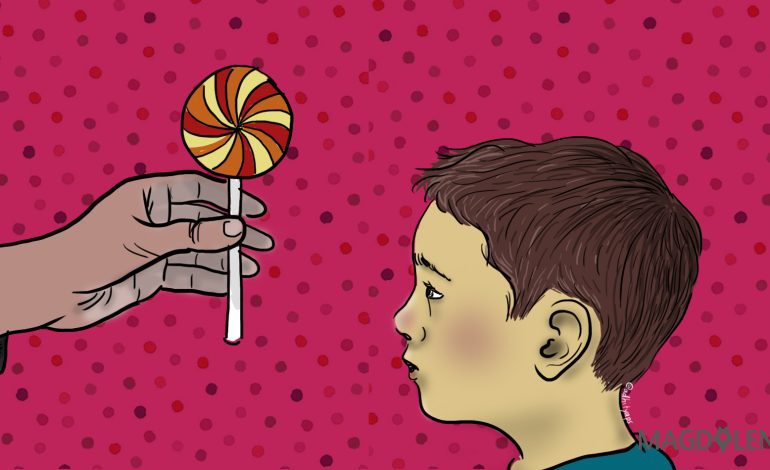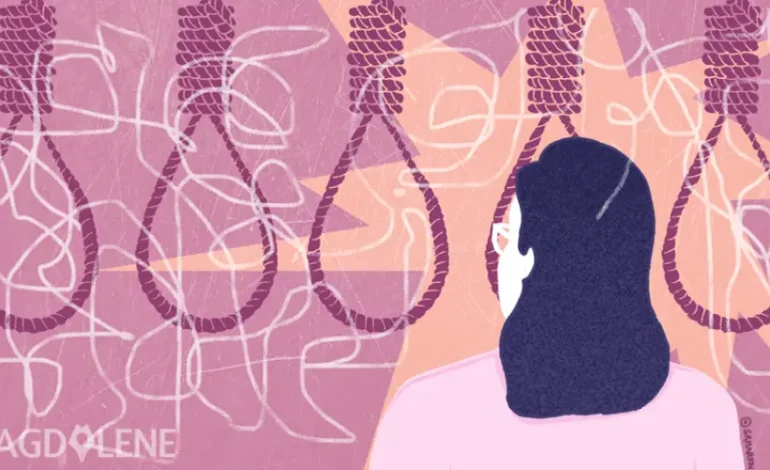Being a Pro-Choice Catholic in Indonesia
“I believe abortion should be permitted in case of rape or medical emergency,” said my high school friend. I never asked why she brought that up, but I wholeheartedly agreed with her. She was a Protestant in a Catholic school.
Many Protestant Christians are also against abortion, but the Catholic church seems to oppose anti-abortion stronger. No Catholic friend of mine ever wanted to discuss the issue, and I guess my Protestant friend brought it up because she was confident of my agreement. Instead of sexual ethics, Indonesian Catholic community of the late 20th century was more interested in religious tolerance and democracy in the new Indonesia.
When I arrived in Australia, I did what other Christian Indonesians do – get active in the church. I was surprised that the Australian Catholic church was preoccupied with oppositions against gay rights and abortion, even against stem cell research. Although the church is only objected to human embryonic stem cell research, many Catholics there, including priests, believe all stem cell research is evil. On the other hand, there was little attention given to inequality in Catholic schools (a common controversy among Indonesian Catholics), social justice, and refugee rights.
When the 2001-2002 Spotlight investigation in United States led to accusations of similar abuses happening in Australia, many Catholic Australians were in denial. Some Catholics even believed that it was a smear campaign designed by ‘the sex industry’, which profited from contraception sales, gay parties, and abortion clinics. While Australian Catholics felt besieged in an un-Christian state, Catholic students from Asia kept themselves inside their own communities, oblivious to news in Australia or back home.
The first time my faith on the Catholic church was shaken was when an American priest proudly told the story of Gianna Beretta Molla. She was an Italian pediatrician who developed a fibroma (benign tumor) on her uterus during her fourth pregnancy. She refused both an abortion and a hysterectomy (removal of the uterus) although Catholic law would allow hysterectomy, following the principle of double effect (known in our time as the Trolley Problem). She opted for the removal of the fibroma, gave birth through a Caesarean delivery, and died on 28 April 1962.
In 1990s and early 2000s, the Vatican confirmed a couple of miracles in Brazil attributed to prayers mentioning her, and in May 2004 she was declared a saint. After the priest ended his story, a woman asked him about abortion in case of rape, and he confidently answered that the church welcomes unwanted babies. Just send them to foster care. Even an atheist student, who constantly contradicted the priest, was silent that afternoon. Perhaps not from shock, but from indifference.
Beretta Molla made her choice and her daughter Gianna Emanuela lives with the story of her mother’s sacrifice. But I am disturbed with how the Catholic church uses her as a “good woman” model. I think her faith motivated her choice, but what is the message here? Is it better to die than to live with the memory of abortion? That medical and feminist perspectives on abortion do not matter since the church can say “Don’t listen to us, listen to this saintly female doctor”?
Why are so many Catholics against abortion? Besides believing that it is a murder of an innocent life, apparently many of them believe that abortion is like contraception – it helps women “refuse” childbirth and enables women to have sex without the consequence of nine months of pregnancy and a lifetime of raising a child.
No one believes that abortion is a good thing, just like no one enjoys going to a doctor. Pro-choice advocates understand the medical risk and the emotional pain of passing through an abortion. What abortion offers is a choice to escape from an unintended pregnancy. Getting through the unwanted pregnancy, the unwanted childbirth, and the unwanted childrearing years would benefit no one – not the child, not the parents, and not the community.
Now the pro-life movement unites Evangelical Christians and Catholics, even as more Protestant churches allow abortion on some circumstances, and more Catholics in the West have no objection with abortion. Some anti-abortion arguments from the 20th century is repeated, like that Nazis and communists legalized abortion and so pro-choice groups are as evil as them; along with more modern arguments like abortion is responsible for the decrease of Christian population in the West, or that Hillary Clinton deserved to lose because she supports abortion.
The May 2018 referendum in the Republic of Ireland to amend its constitution was a case of the globalization of abortion issue. Irish citizens crossed the oceans to vote, feminists worldwide wrote #Repealthe8th, and American Christians launched online campaigns against the referendum.
Two thirds of Irish voters supported the repeal of the eighth amendment of the Irish Constitution, enabling the parliament to allow abortion. Feminists in Indonesia celebrated the news, while I hardly heard reaction from Indonesian Catholics (not that I was interested).
My aunt, who lives in the United States, wondered about the “silence” of Indonesian Catholics on the Irish referendum. Luckily, it means abortion is still not a pressing issue among Catholics here, compared to religious tolerance and security. American obsession with abortion in the age of Trump also hints at the true concern of the pro-life side: The desire to control women’s body and soul, and the demand for Christian women to keep producing (white) Christian children, regardless how the children will grow up.
Being a pro-choice Catholic in Indonesia is bizarre. On one hand, no one will attack you (it would be a different story for a pro-choice woman), but it is next to impossible to find fellow pro-choice Catholics here. Following the Surabaya bombings, a couple of Garuda Indonesia’s pilots spread conspiracy theories on social media. As they were uncovered, one of them was revealed to have impregnated a woman last year and demanded her to abort it. She wrote her story on Twitter last month and as people were supporting her, some Catholic commenters preached on the evil of abortion and its association with terrorism, leading to online fights between them and feminists.
These Catholics commenters didn’t really care about the woman or her baby, they only cared about their cultural wars against Muslims and the pro-choice side. Our men think they have to make everything religious.
Read Mario’s take on virginity and “incel” and follow @MarioRustan on Twitter.






















